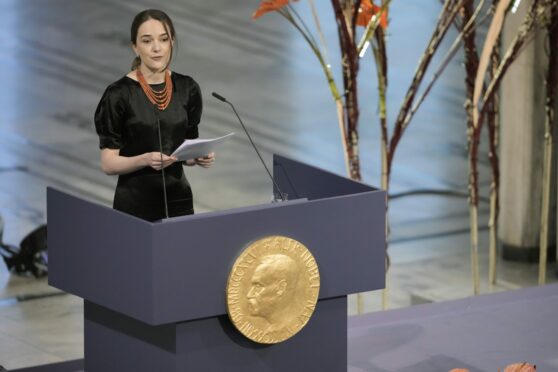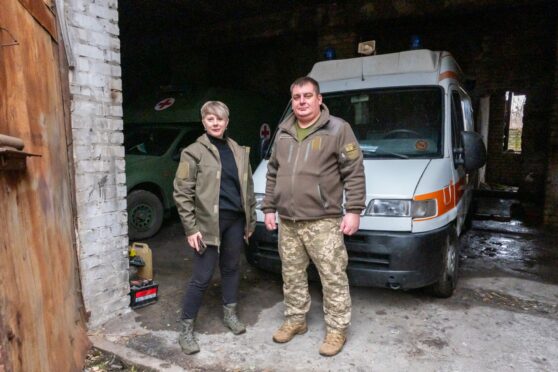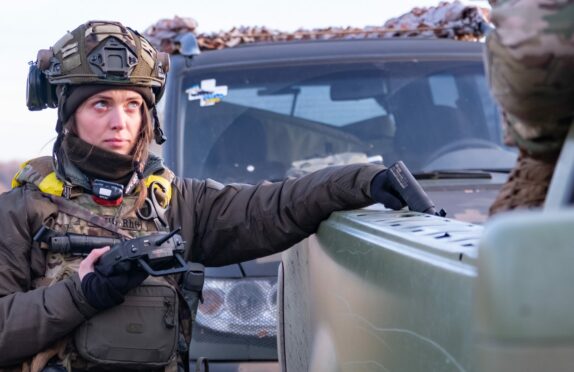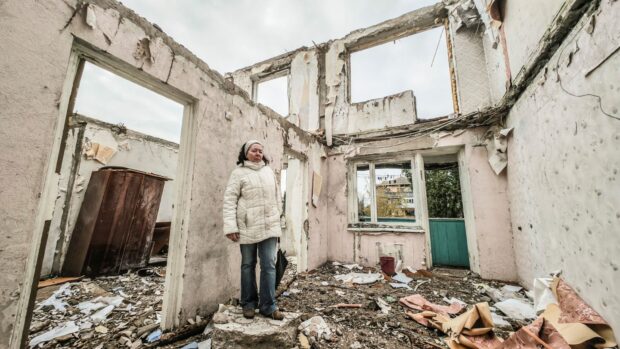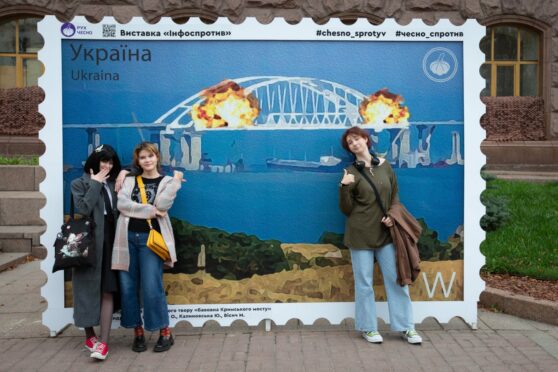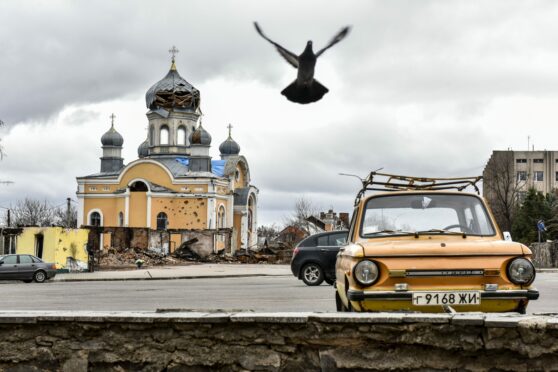
Russian air strikes on cities in the west of Ukraine resumed yesterday after the humiliating loss of its Black Sea flagship.
The Kremlin ordered missile strikes on the capital Kyiv and Lviv as its forces continued to regroup for a new offensive in the east of the country. They were said to be close to capturing Mariupol last night after overcoming fierce resistance. Commentators suggest the military escalation comes in response to the sinking of the Moskva on Thursday and renewed reports Russian forces were struggling to make headway.
The Kremlin issued a warning of “unpredictable consequences” if the West does not stop arming Ukraine as the United Nations said at least 1,900 civilians have been killed since the invasion began seven weeks ago. Among the dead are 162 children but the Office of the UN High Commissioner for Human Rights warned the number of casualties is likely to be far higher.
Most of the civilian deaths and injuries had been caused by shelling and air strikes.
Russian forces continued preparations for a renewed offensive in eastern Ukraine, and fighting also went on in the pummelled southern port city of Mariupol, where locals reported seeing Russian troops digging up bodies.
There are reports that Mariupol will be completely closed for entry and exit, potentially sealing the city and preventing further humanitarian evacuations.
Russian forces reportedly took control of the sprawling Azovstal iron and steel works which had been a stronghold for Ukrainian troops in the port city.
Kyiv’s mayor Vitali Klitschko said that one person died and several more were wounded in air strikes on the Darnytski district of the capital yesterday morning.
Explosions have also been heard in Lviv, in western Ukraine. However, the head of the regional government, Makysm Kozytskyi, said this was because of the successful defence of the area with anti-aircraft units destroying four cruise missiles.
Klitschko said on the Telegram messaging app: “Our air defence forces are doing everything they can to protect us, but the enemy is insidious and ruthless.”
He urged Ukrainians not to return to Kyiv, warning that strikes on the capital are likely to continue and its suburbs are rigged with explosives.
“We’re not ruling out further strikes on the capital,” Klitschko said.
Anna Budko, a Kyiv resident, told BBC correspondent Yogita Limaye: “You forget sometimes that you’re still afraid of every sound, even if it comes from your neighbour’s house, or if someone bangs a car door.”
Kyiv’s police chief, Andriy Nebytov, says 900 civilians have been found dead in towns around the capital after Russian troops left.
He said bodies were abandoned in the streets or given temporary burials. He cited police data indicating 95% died from gunshot wounds.
“Consequently, we understand that under the Russian occupation, people were simply executed in the streets,” Nebytov said.
More bodies are being found every day under rubble and in mass graves, he added, with the largest number – 35 – found in Bucha.
According to Nebytov, Russian troops had been tracking down people who expressed strong pro-Ukrainian views.
Moscow is reeling after a key warship, the Moskva, named after the Russian capital, sank while being towed to port on Thursday after apparently being hit by Ukrainian missiles. Moscow did not acknowledge any attack, saying only that a fire had detonated ammunition on board.
Experts say the loss of the ship represents an important victory for Ukraine and a symbolic defeat for Russia. After the sinking, Russia warned Ukraine’s allies to stop arming the country, saying that failing to do so could have unpredictable consequences.
Ukraine’s president Volodymyr Zelensky has warned that the world should prepare for the possibility of a Russian nuclear strike.
Russia’s defence ministry said yesterday’s air strikes targeted a military factory in the capital, Kyiv, said to have manufactured the type of missiles that sank the Moskva.

Enjoy the convenience of having The Sunday Post delivered as a digital ePaper straight to your smartphone, tablet or computer.
Subscribe for only £5.49 a month and enjoy all the benefits of the printed paper as a digital replica.
Subscribe